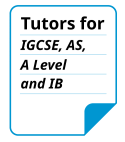IGCSE
IGCSEs are the International General Certificate of Secondary Education. In other words, the examinations that are taken, in the British system, at the end of secondary education.
These exams are taken in Year 11 (the old fifth form) and are the stepping stone to the British Baccalaureate, which consists of AS Levels (Year 12) and A Levels (Year 13).
Although the exams are taken in Year 11, they are usually prepared for in two years, between Year 10 and Year 11, when students are between 14 and 17 years old. These examinations are internationally recognised.
Cambridge (altough there are other boards), created and registered the IGCSE mark in 1988 and has over 70 subjects at this level. Grades range from A* to G, with U being Ungraded (it is not possible to assign a grade). There are usually two examination sessions: June and November and grades are awarded in August and January.
IGCSE exams come in two levels, Core and Extended. British schools usually recommend students to take one type of exam or the other depending on how the student has progressed in the last two years (Year 10 and 11):
Core is the basic level. It involves knowledge of the whole subject. Only grades C to G (C D E F G) can be obtained. A Core student cannot get more than a C.
Extended is the advanced level and involves the Core level plus a supplement. Grades A* to E can be obtained (A* A B C D E).
It is not necessary to do the same level in all subjects, you can do some subjects in Core and others in Extended. Bearing in mind that you take between 5 (minimum) and 14 subjects (maximum) you can combine the levels. It is normal to do 5-7 subjects.
However, it should be remembered that if you intend to do the A Levels of a subject in the future, if you do not do the Extended you will need to do more work in order to reach the level. The ultimate aim is not only to pass secondary school but to gain the necessary knowledge for the Baccalaureate.
